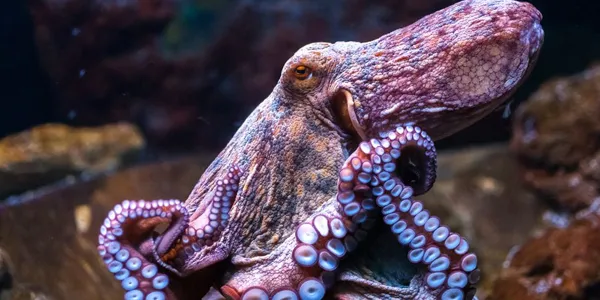🌊How Well Do You Know Marine Life?🐟🐬
2. How many tentacles does an octopus have?

An octopus has eight arms, all covered in suction cups. A squid has eight arms and two longer tentacles, but an octopus just has the eight.
The ocean covers over 70% of Earth's surface and is home to millions of species, many of which remain a mystery. Marine life range from tiny invertebrates to enormous mammals, all adapted to survive underwater. Learning about them gives us insight into the complex and fascinating ecosystems that make life under the sea so unique.
Fish: The Colorful Swimmers
Fish are the most diverse group of Marine life. They have gills, scales, and fins and come in incredible shapes and colors. From clownfish in coral reefs to the fierce barracuda, fish display amazing adaptations to evade predators, find food, and communicate with each other.
Marine Mammals: Giants of the Sea
Marine mammals include seals, dolphins, and whales. Although they live in the ocean, they breathe air. They exhibit high intelligence and possess excellent communication skills. Dolphins are playful and highly social, while whales use songs to communicate across vast distances.
Invertebrates: The Unsung Heroes
Many Marine life, such as octopuses, squids, jellyfish, and corals, lack backbones but play essential roles in ocean ecosystems. Octopuses are masters of camouflage, squids use jet propulsion to escape, and coral reefs provide shelter for thousands of species.
Crustaceans and Mollusks
Crabs, lobsters, and shrimp are fascinating crustaceans, often with strong exoskeletons for protection. Mollusks like clams, oysters, and squid have unique adaptations for survival. Some mollusks, like the octopus, show incredible problem-solving skills.
Ocean Predators
Sharks, killer whales, and other predators maintain the balance of marine ecosystems. Each predator has unique traits, such as sharp teeth, echolocation, or speed, that allow it to hunt efficiently. Understanding these creatures helps us understand the complexity of marine food webs.
Protecting Marine Life
Human activities threaten many marine animals through pollution, overfishing, and climate change. Protecting the oceans and marine life is crucial to maintaining biodiversity. Conservation efforts, sustainable fishing, and responsible tourism help preserve these underwater worlds for future generations.
Do you know your clownfish from your anglerfish? Can you identify marine mammals, invertebrates, and ocean predators? Test your knowledge with fun trivia questions and see if you're a true expert of the deep blue sea!


